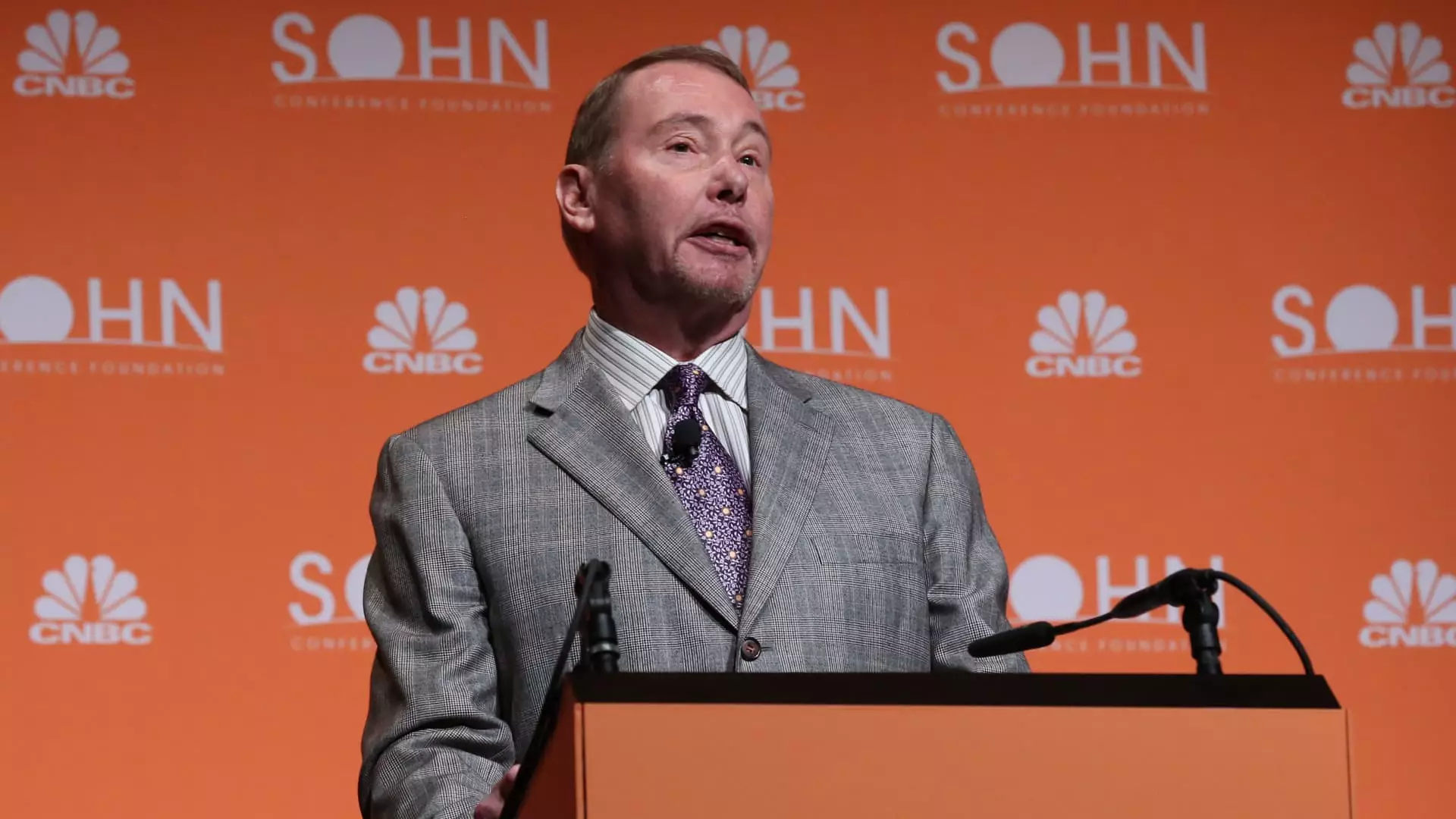Jeffrey Gundlach, the CEO of DoubleLine Capital and a prominent figure in fixed-income investing, recently voiced his views on the potential repercussions of a Republican-controlled House of Representatives. With the political landscape poised for changes that may significantly influence fiscal policy, Gundlach’s insights highlight the intricate relationship between political decisions and economic outcomes. His assertion that higher government spending could lead to an increase in interest rates serves as a stark reminder of how intertwined fiscal governance is with market dynamics.
According to Gundlach, if Republicans dominate the House, this could unleash a wave of spending initiatives led by President-elect Donald Trump. The implication is clear: a surge in government expenditure would necessitate increased borrowing, primarily through Treasury issuance. This escalation in debt levels is likely to exert upward pressure on bond yields, raising the long-term interest rates. Gundlach’s remarks bring to light the critical importance of examining how significant political shifts could result in heightened fiscal deficits, thus complicating the landscape for investors.
The reliance on debt financing in the wake of expansive fiscal policies raises vital questions about sustainability and the overall health of the U.S. economy, particularly given the already staggering $36 trillion national debt. This context points to the urgent need for a carefully crafted approach to managing national finances amid changing political tides.
Gundlach’s analysis also emphasizes the role of the Federal Reserve amidst these potential developments. The central bank’s recent decisions to lower interest rates highlight a complicated balancing act: stimulating growth while keeping inflation in check. As traders speculate on further cuts in the upcoming months, Gundlach’s warnings suggest that a Republican agenda may force the Fed’s hand, creating a situation where it must contend with inflationary pressures from increased government spending. The result could be a scenario where economic growth is stymied by rising costs of borrowing for both the government and consumers.
The discourse around tax policy is another pivotal point in Gundlach’s analysis. Trump’s inclination to extend existing tax cuts or introduce new ones could complicate the fiscal landscape further, leading to escalated budget deficits. While tax cuts might stimulate short-term economic activity, Gundlach warns about the long-term burden this places on national debt. It creates a paradox where immediate fiscal relief may sow the seeds of future economic instability.
Despite these concerns, Gundlach also posits that Trump’s presidency might mitigate the risk of a recession in the near term. His view suggests that a pro-growth agenda, while potentially disastrous for long-term fiscal health, may bolster economic performance in the short run. The variability in economic forecasts in response to political outcomes highlights the uncertainty investors must navigate in a climate of shifting policies.
Gundlach’s insights serve as a crucial reminder of the unpredictable nature of economics influenced by political actions. As investors and policymakers alike ponder the ramifications of a changing political landscape, understanding the potential implications of fiscal policy changes on interest rates and economic stability is paramount. The intricate dance between governance and economic factors will not only shape the immediate future but is likely to have long-lasting effects on the U.S. economy. Going forward, stakeholders must remain vigilant and adaptive to the evolving interplay between these forces.

